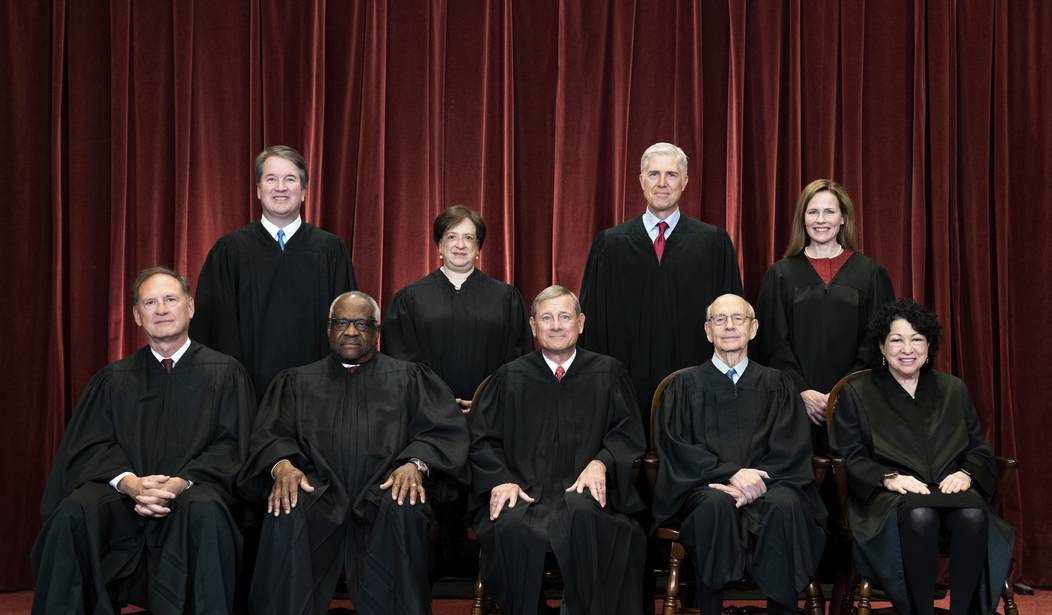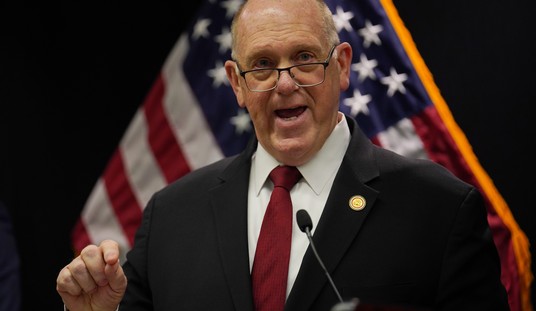For a Supreme Court whose playbook usually begins, ends, and largely consists of punts, this decision to jump in front of federal vaccine mandates looks more like an onside kick. Not only did the court decide to take up two separate tracks at the same time on the merits rather than deal with temporary injunction requests, they scheduled arguments for what appears to be the soonest possible date:
The Supreme Court says it will hold a special session in just over two weeks to weigh challenges to two Biden administration policies covering vaccine requirements for millions of workers, policies that affect large employers and health care workers.
The high court’s announcement Wednesday that it will hear arguments in the cases Jan. 7 comes amid rising coronavirus cases and is an extraordinarily fast timeline. The court had not been scheduled to hear cases again until Jan. 10.
A three-judge panel of the 6th U.S. Circuit Court of Appeals in Cincinnati ruled 2-1 on Friday that the vaccine or testing regime for workers at larger companies could take effect. The plan requires workers at larger companies to be vaccinated or wear face masks and get tested weekly. The requirement could affect some 84 million U.S. workers. …
The high court also will hear arguments over a rule published Nov. 5 by the Centers for Medicare & Medicaid that applies to a wide range of health care providers that receive federal Medicare or Medicaid funding. It requires their workers to receive the first dose of a COVID-19 vaccine by Dec. 6 and be fully vaccinated by Jan. 4. It was projected to affect more than 17 million workers in about 76,000 health care facilities as well as home health care providers.
Decisions by the New Orleans-based 5th U.S. Circuit Court of Appeals and St. Louis-based 8th U.S. Circuit Court of Appeals as well as a federal judge in Texas have the mandate blocked in about half of states.
Why take this up now? The short and too-easy answer is the circuit split. When the Sixth Circuit reversed its injunction and allowed the mandate to take effect (in its jurisdiction, it should be noted), it set up a precedential conflict that the Supreme Court needs to resolve … at least theoretically. These are two different cases with two different (although similar) mechanisms, and they have not played out fully in court yet. The parties in all of these cases are still dealing with injunction requests and other preliminaries; the district courts have not yet fully fleshed out all of the issues in any full trial.
In other words, it’s more than just the oral-argument date that’s getting fast-tracked here. This would be fast even if all the court wanted to review were injunction requests. Instead, the court has apparently decided to leapfrog the district courts’ trial phase and just get to the inevitable — a very different approach than the Supreme Court usually takes. That could be a nod to the assumption of emergency in pandemics, but in practical terms the COVID-19 pandemic has long since stopped being the kind of emergency that impacts legal authorities and jurisdictions. Even the vaccines are a year old now, so mandating them might not be the kind of emergency measure that would impress courts.
Since we have so little on the trial record, and so little in the two orders setting up this extraordinary session at the Supreme Court, the motivation for holding it are difficult to read. One thread to keep in mind would be how the court got burned on the eviction moratoria cases this past summer, when the Biden administration defied the court on mandates issued by executive agencies. The first time the court got it, they allowed the moratorium to expire naturally three weeks after their ruling but concluded that it was unconstitutional. Biden and his team had the CDC issue another eviction moratorium anyway, which the Supreme Court then picked up within weeks from the so-called “shadow docket,” striking it down without a full hearing on the merits — because they’d already gone through that process two months earlier.
With the vaccination mandates, the Biden administration is using a very similar mechanism — executive agencies imposing mandates without any congressional authority to do so. Whether it’s the CDC and evictions or OSHA and CMS on vaccinations, these kinds of mandates are far outside their statutory authority. If Congress passed this as a statute, it might still have constitutional defects, but the lack of statutory support for this grab at authority makes this an easier issue for the court. The Supreme Court may see that the same way, only this time they want to make sure everyone gets a full hearing on the merits before they act in order to avoid the ridiculous “shadow docket” criticism. It would be more necessary in this case, since courts haven’t tested this in a full trial yet, nor has the Supreme Court ruled on this issue before.
If that’s what drove this decision to hold a full set of arguments on the merits at the earliest possible date, I’d guess that this is bad news for the Biden administration. The court tossed out the CDC’s eviction moratoria on a 6-3 vote in August, following the 5-4 ruling in June that Biden ignored. Not only would I look at 6-3 as a good baseline for tossing these mandates out, it might even go 7-2 or 8-1 after the two moratoria precedents. The accelerated review process strongly suggests that we will get a decision very, very quickly, perhaps even before the end of the month. The oral arguments should be fascinating, maybe even more so than the Dobbs case earlier this month.








Join the conversation as a VIP Member